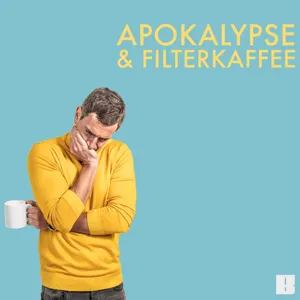GMoLS5E27 Marxists with Donald Clark

Marxism and education.
This episode examines the impact on learning of a thinker, Karl Marx, who had a revolutionary effect on the world in general. In the name of Marx and his collaborator Engels, politicians of the 20th Century created regimes that were utopian in some cases, highly repressive and even murderous in others. Meanwhile, the heirs to Marx’s intellectual tradition fleshed out Marxism as a rich and powerful explanatory system. And though controversial to this day, Marxist thought has had an enduring effect on learning and education.
00:00:00 - Intro
00:00:57 - Introducing The Marxists
00:05:28 - Karl Marx (1818-1883)
00:18:16 - Antonio Francesco Gramsci (1891-1937)
00:27:14 - Louis Pierre Althusser (1918-1990)
00:47:00 - Jürgen Habermas (1929 - )
01:00:02 - Paulo Regius Neves Freire (1921-97)
01:09:38 - Summing up
The Blog that started it all: https://donaldclarkplanb.blogspot.com/2021/09/these-were-written-as-quick-readable.html
Marx bit.ly/315AxKF
Gramsci bit.ly/2REFkj6
Althusser bit.ly/2UihsUe
Habermas bit.ly/46TpxAS
Freire bit.ly/496gQF1
Contact Donald
X: @DonaldClark
LinkedIn: https://www.linkedin.com/in/donald-clark-04553022/
Blog: http://donaldclarkplanb.blogspot.com/
![Episode 170: Dr. Gary Habermas on the Historical Reliability of the Gospels and the Resurrection [Part 2]](https://www.podcastworld.io/podcast-images/apologetics-profile-smrfal62.webp)





 Blasting back to the heyday of the punk movement, Kevin and Mike hop aboard Rocket to Russia, the third studio album by rough and tumble rockers, The Ramones. Featuring prominently in this consummate discourse on pop culture are gratuitous references to the likes of Walt Whitman, Paul McCartney and Wings, The Fairly OddParents, Jack Kerouac, Motörhead, The Gong Show, and Fibber McGee and Molly. And somehow, Jurgen Habermas horns his way into the conversation yet again.
Blasting back to the heyday of the punk movement, Kevin and Mike hop aboard Rocket to Russia, the third studio album by rough and tumble rockers, The Ramones. Featuring prominently in this consummate discourse on pop culture are gratuitous references to the likes of Walt Whitman, Paul McCartney and Wings, The Fairly OddParents, Jack Kerouac, Motörhead, The Gong Show, and Fibber McGee and Molly. And somehow, Jurgen Habermas horns his way into the conversation yet again.






